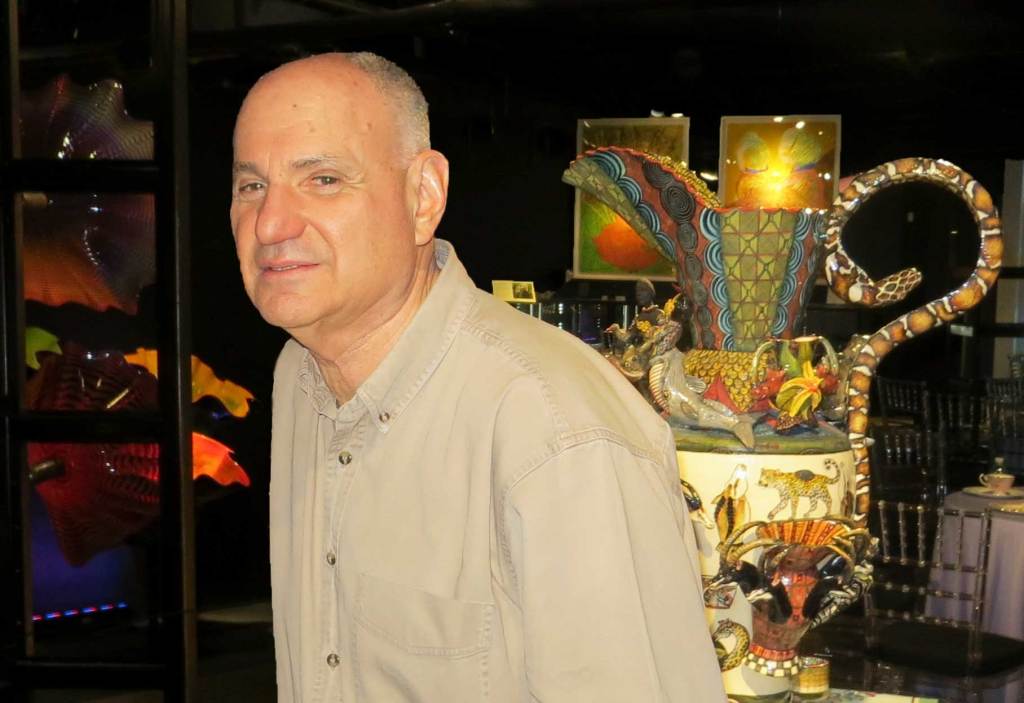Political Party Struggles To Live Up To Name

The Independence Party, theoretically conceived to give voters a choice beyond the traditional two-party political system, has done reasonably well in New York State and gained a strong foothold on the East End.
But it most assuredly does not live up to its name; even party insiders know, as one said this week, “It’s Frank’s party.”
That would be Frank MacKay, a former music promoter who, after becoming smitten with third-party presidential candidate Ross Perot, helped organize the Independence Party in 1995. Five years later, he became New York State chairman and has sat on the throne ever since. The party currently has about 500,000 members, enough to influence many local elections.
Though there is local leadership in place in most municipalities, MacKay oftentimes pays little heed to its recommendations or suggestions, and local politicians who curry favor with MacKay sometimes learn the hard way there is sometimes no rhyme or reason to the chairman’s decrees.
Southampton Town Supervisor Jay Schneiderman, who is running for Suffolk County comptroller this year, approached MacKay about getting the Independence Party nod. “I consider Frank a friend,” he said. Schneiderman has several attributes he believes would appeal to Independence Party voters: During his 18 years as a public servant in three different elected positions, he has never raised taxes, ever.
Schneiderman has also never lost an election, and is a former member of the Independence Party.
But Schneiderman, running as a Democrat, will have to face the incumbent John Kennedy without the Independence line: Kennedy received MacKay’s endorsement.
“I sat down with Frank,” the supervisor recalled. “I have a great relationship with him. I guess he didn’t think this was the right time.”
Left unsaid: MacKay cut a deal. “I have a good idea with whom,” Schneiderman said. There is little a spurned candidate can do about the slight: “He has Wilson Pakula power,” Schneiderman lamented, as if the Pakula was a magical skill bestowed on a superhero.
Wilson Pakula is a document needed by a non-Independence Party member who wishes to be placed on an election ballot and it does indeed have a powerful, if not magical, connotation: It can make anyone an instantly viablepolitical candidate.
In East Hampton, MacKay issued a Pakula for David Gruber, a Democratic candidate for town councilman who last ran for office two decades ago. But two other candidates, David Lys (running on the Democratic Party line) and Manny Vilar (a Republican) were denied. So, Gruber will face both men in the general election if his petitions hold up in court — they are being challenged. Had MacKay issued three Pakulas, party members would have voted in a primary to pick their candidate.
That’s the problem, said Tina Piette, an Independence Party member. “This all comes from MacKay —1200 Independence Party voters are being disenfranchised.”
Though East Hampton Independence Party chairwoman Elaine Jones was on board with the Gruber choice, she’s one of the many local party bosses who have been overruled by MacKay in the past.
In 2011, East Hampton Town Supervisor Bill Wilkinson, Republican, sought the Independence line as well. The East Hampton Independence Party nominated Wilkinson’s opponent, Zach Cohen. But MacKay signed the Wilson Pakula for Wilkinson. Jones was livid. Bridget Fleming, a Suffolk County legislator, felt the sting of MacKay’s behind-the-scenes maneuvers not once, but twice.
“In 2010 the locals [the Southampton] Independence Party endorsed me. MacKay endorsed Chris Nuzzi and Jim Malone.” That was a special election to fill a seat on the board. The next year, Fleming ran for a full four-year term, and MacKay turned on her again.
“He issued a Pakula for both Christine Scalera and me. We were in the process of gathering petition signatures when he invalidated my Pakula,” Fleming recalled. She prevailed nonetheless.
“The deal making has to stop,” Fleming said. “We need to take a look at these cross endorsements.”
“The name of the Independence Party is misleading: it neither represents ‘independence’ nor is it ‘independent’ of the major parties,” Susan Lerner, director of the good-government group Common Cause New York, told Newsday.
MacKay, who did not return requests for comments, is no stranger to controversy.
MacKay has used Oheka Castle as his personal social club for the past decade and its proprietor, Gary Melius, is a close friend and advisor.
According to Newsday, MacKay also earns a healthy income from Oheka Castle, as well as the Independence Party,
On March 13, 2014, Melius was shot in the eye leaving Oheka Castle. He survived, and despite being seen on tape, the assailant was never apprehended.
MacKay, in addition to making or breaking some political candidates, has a foothold into the selection of state judgeships. Take the 2012 Supreme Court races on Long Island. Newsday reported 12 candidates ran, with the top six vote getters winning a judgeship. The six winners all had Independence Party support; the six losers did not. Party support more than covered the difference between the sixth-place victor and seventh-place loser.
“In my opinion he doesn’t care,” Piette said. “He doesn’t give [damn] about local politics.”
rmurphy@indyeastend.com



